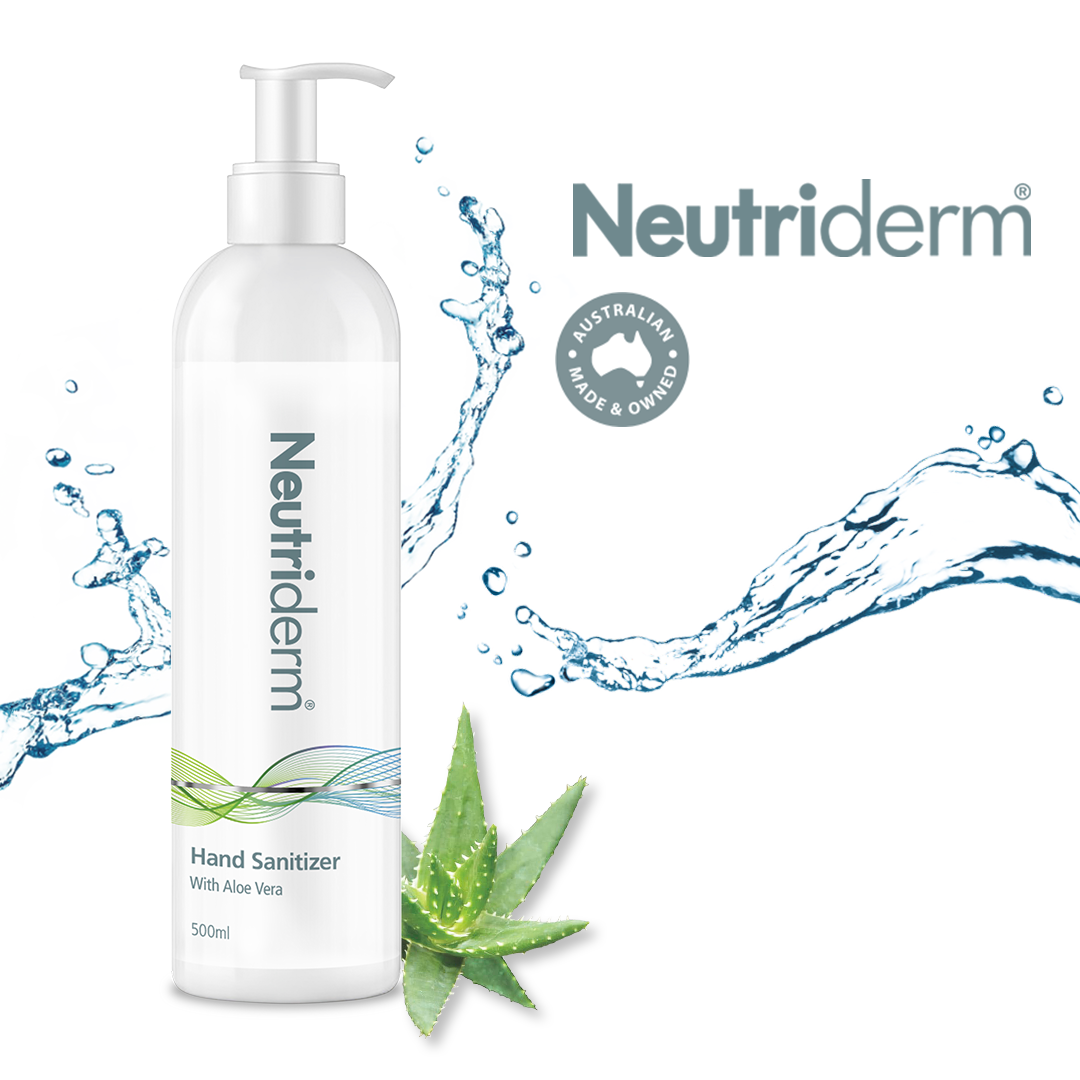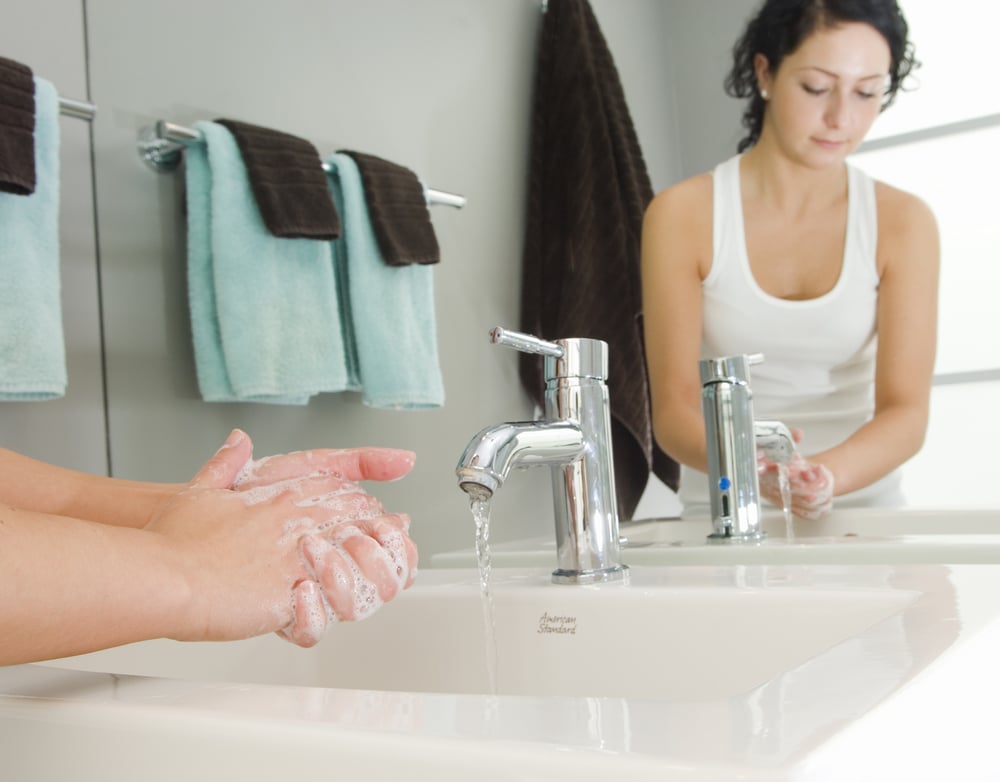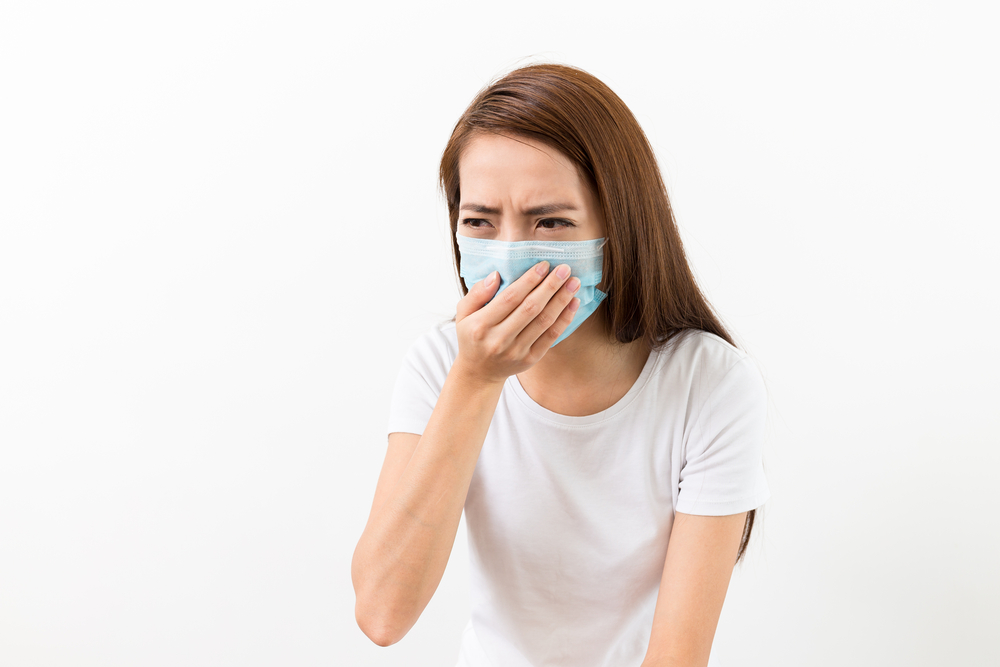With hand sanitizer now part of our daily hygiene regime, it's important to understand how these antibacterial gels are intended to be used and exactly how they keep us COVID-free.
How Does Hand Sanitizer Keep your Hands Germ Free?
/ by Ismay Radisich posted in Neutriderm, Skin Care, hydrate, dry skin, hygiene, hand sanitizer
6 Personal Hygiene Habits
/ by Ismay Radisich posted in Dermavive, Feminine Hygiene, Skin Care, Colloidal Oatmeal, personal hygiene, hygiene
There’s never been a more prominent time to talk about hygiene, but what about personal hygiene beyond hand wash and sanitiser?
While some of these tips may seem obvious to you, you may learn something new along the way - especially when it comes to personal care.
#1. Wash Your Hands
This is hygiene 101. Aside from before and after using the bathroom, and preparing food, it’s important to protect our families and co-workers from germs throughout the day. For example, washing your hands before greeting a colleague or friend with a handshake is a great way to increase your personal hygiene practices and minimise the passing of germs.
#2 Dental Hygiene
It’s a no-brainer that brushing your teeth morning and night is essential for dental health, fresh breath and to maintain those pearly whites, but did you know that dentists recommend a professional clean and check-up every six months? If it's been longer, make sure you book in.
One thing Dentists preach to their clients when they do visit, is to floss. Flossing is important to remove trapped food from between your teeth. This not only minimises the chances of tooth decay and gum erosion, it minimises bad breath - totally worth it!
#3 Tidy Nails
Keeping your nails clean and trimmed is an easy way to eliminate dirt and germs which love to live underneath the nail. Our nails are a breeding ground for nasty bacteria (klebsiella) which can lead to infections, and even illnesses such as pneumonia. A monthly manicure isn’t essential if you know your way around a nail grooming kit as long as you make it a regular habit to clean, trim, and care for your nails.
#4 Wash Daily
Whether you’re a religious morning shower-er, or you save it as a pre-bed ritual, or both, nothing replenishes full body hygiene like a nice hot shower. A shower can be used to wash away dirt, sweat, dead skin cells, and can also be a time to wash and exfoliate the face.
Washing, drying and styling your hair is also an easy way to practice good personal hygiene. If your hair is particularly oily, or perhaps you are suffering from a flaky scalp, washing your hair twice weekly is the first step in remedying this issue.
#5 Body Odour
Puberty, excessive sweating and poor hygiene may be responsible for body odour. While antiperspirants are number one for minimising sweat and suppressing odours, showering daily with an antibacterial cleanser is most effective, especially post-exercise. In addition to this, wearing cotton t-shirts and embracing all-natural fibers can minimise sweating and unpleasant odours.
#6 Feminine Hygiene
Washing your most intimate areas is a daily ritual that is beneficial for full body hygiene. While many women do wash themselves daily, it’s important to do this correctly with a delicate feminine hygiene product. Feminine Hygiene products are designed to maintain a balance within the body’s most sensitive and intimate areas where the skin requires a unique formulation for optimal skin health. As a bonus, with deodorising effects, these products are designed to mask natural odours which regular body washes are not designed to do.
Dermavive Intimate Wash contains an expertly formulated blend of cleansing and soothing ingredients, making it one of the most effective and gentle products on the market. Specifically formulated to encourage good skin health in the most sensitive areas of the body, Dermavive Intimate Wash can be used for everyday care for optimum vaginal health as well as part of the treatment for Vulval Dermatitis with superior anti-inflammatory and nourishing effects.
Read our blog all about Feminine Hygiene here.
Are you ready to step-up your personal care habits and include a feminine hygiene product in your daily routine? Consider a product with natural cleansing capabilities, natural deodorising effects along with the nourishing benefits of Colloidal Oatmeal found in Dermavive Intimate Wash.
Among the hysteria of Coronavirus, it’s important to adhere to practical and sensible advice to limit its spread. Here are some tips to limit your chances of contracting COVID-19 as well as some information on the virus itself.
What is Coronavirus?
Coronavirus (COVID-19) is a respiratory illness caused by a new virus. Symptoms range from a mild cough to pneumonia. Some people recover easily, others may get very sick very quickly. - health.gov.au
What are the symptoms?
- Runny nose
- Sore throat
- Cough
- Fever
- Difficulty breathing (severe cases)
Who is at risk?
Those at risk of complications caused by the virus include the elderly, those with impaired immunity such as diabetics, and those with pre-existing medical conditions.
What should you do if you think you have it?
It’s important to stay at home if you feel unwell. However, if you have a fever, cough and difficulty breathing, seek medical attention from the appropriate clinic or your local doctor. In all instances, be sure to call in advance and diligently follow the directions of your local health authority.
STEPS TO AVOID CATCHING COVID-19
- Wash your hands frequently
Regularly and thoroughly wash your hands with a soap-free cleansing bar. As an additional germ-fighter, clean your hands with an alcohol-based hand rub in between washes.
Why? Washing your hands with soap and water or using alcohol-based hand rub kills germs including viruses.
- Maintain social distancing
Maintain at least 1 meter (3 feet) distance between yourself and anyone who is coughing or sneezing, and avoid close contact with people who are sick.
Why? Small liquid droplets become airborne when someone coughs or sneezes. These droplets may contain the virus which can then contaminate others in close proximity. It is therefore recommended to maintain at least three feet of distance between yourself and anyone who is coughing or sneezing to avoid breathing in liquid droplets.
- Avoid touching eyes, nose and mouth
Avoid touching your face or sneezing or coughing into your hands.
Why? Hands touch many surfaces and can pick up and carry many germs and viruses. Once contaminated, hands can transfer the virus to your eyes, nose or mouth. From there, the virus can enter your body and can make you sick.
- Practice respiratory hygiene
Respiratory hygiene refers to covering your mouth and nose with your bent elbow or tissue when you cough or sneeze. Then disposing of the used tissue immediately.
Why? Airborne droplets spread the virus. By following good respiratory hygiene, you protect those around you from breathing in or contracting viruses such as cold, flu and COVID-19 from objects.
5. Follow CDC recommendations for using a facemask.
Firstly, the Centre of Disease Control and Prevention (CDC) does not recommend a facemask for people who are well. This is not recommended as a remedy to protect oneself from respiratory diseases, including COVID-19.
Instead, facemasks should be used by people who show symptoms of COVID-19 to help prevent the spread of the disease to others. It is also crucial for those working in healthcare and aged care facilities to wear masks around their patients.
For further information on COVID-19 head here.


